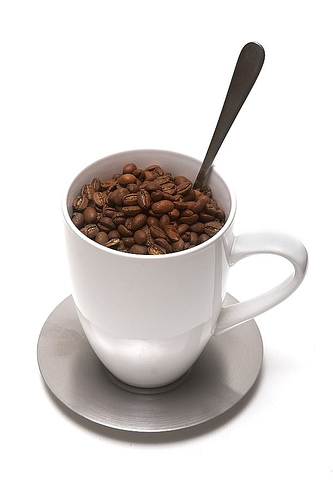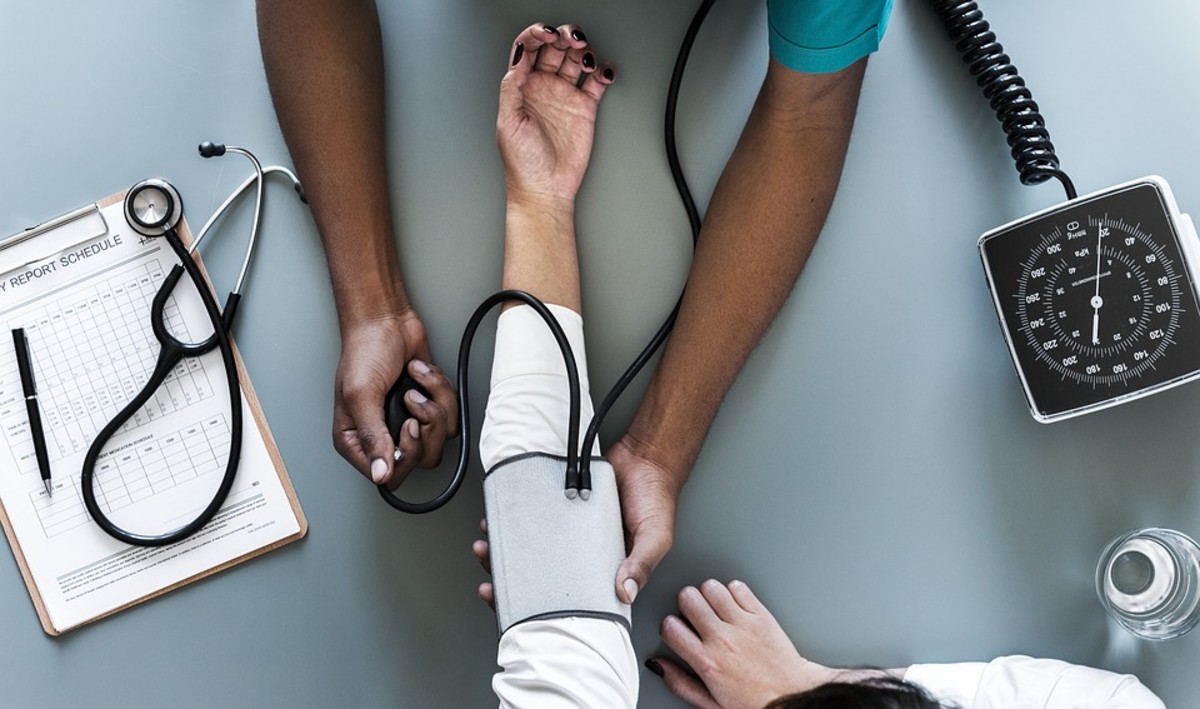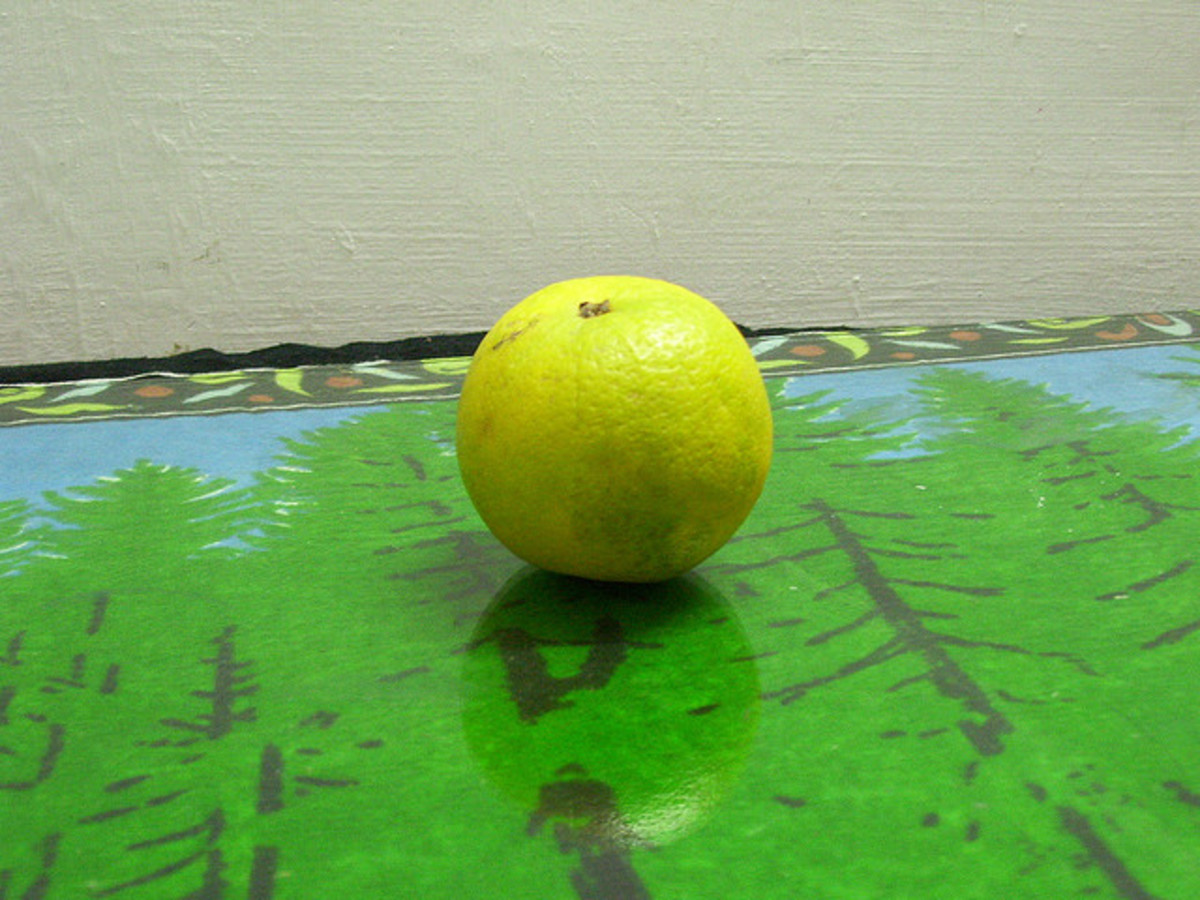How Much Caffeine is Good for You?
How Can People be Affected by Individual Caffeine Consumption?
Caffeine is fast acting. You can feel it in your system just a few minutes after ingestion. It usually remains effective for up to six hours. Caffeine affects energy levels, level of concentration and hormone levels. Used to excess, it can be detrimental to your health. Used in moderation, it can be quite beneficial.
How Much Caffeine in a Coffee Bean?

How Much Caffeine Anhydrous is In A Cup of Coffee?
- Neuroscience for Kids - Caffeine
This page provides a series of charts that give the amount of caffeine found in a variety of common foods, beverages and medications.
How Does Caffeine Affect Hormone Levels?
Dopamine is a feel-good hormone, and the use of caffeine increases the amount and availability of dopamine in the body. It causes a reaction similar to that which you would feel when using amphetamines. This is a two edged sword. While you may feel great when using caffeine, there is always the danger of addiction. In addiction, it takes more and more of the drug to produce the desired affect. Then the desired affect is never produced, but the addiction remains.
Adenosine is a hormone that has a calming effect on the body. The use of caffeine may inhibit adenosine absorption. This is how caffeine helps you stay alert. This can be a good thing; however, use of caffeine should not be practiced to the extent that it disrupts healthful sleep. Caffeine can help you stay alert; however, it can also disturb your sleep. It keeps your mind active for longer and shortens the amount of time you have to restore yourself during sleep. This can have a cumulative effect in the form of a sleep debt over time.
Adrenaline is produced when your body is in "fight or flight" mode. It is also produced when you ingest caffeine! This is good if you need a boost of energy. Bad if you need to sleep or just feel calm. Worst of all, when the adrenaline jolt wears off, you may crash and feel sad and exhausted.
Cortisol is the stress hormone. It has been linked to cancer, weight gain, cardiovascular disease, diabetes and depression. Excessive caffeine intake can increase cortisol levels. When cortisol levels are increased, the body tends to crave carbohydrates and fats. These substances are generally stored as fat in the abdomen. This configuration of fat causes health problems. Also, when cortisol levels are increased, people tend to want more foods that contain caffeine, so a vicious cycle is set up. More caffeine creates more cortisol which leads to more caffeine consumption which creates more cortisol, ad infinitum. These excesses can cause health to deteriorate.
How Much Caffeine is Good For You?
So why use caffeine at all? Well, you may have noticed that mixed in with the warnings, there were some good points: alertness, focus, concentration, increased dopamine production and availability, and increased energy levels. The trick to getting these benefits without the negative affects is moderation. When caffeine is used judiciously, it can help with weight loss. A single dose of caffeine before a workout (say one cup of coffee) can increase performance levels and boost metabolism. When used wisely, caffeine can help your body metabolize fat about with about thirty percent greater efficiency. Additionally, caffeine can increase your blood sugar levels so that you do not feel so hungry.
How Much Caffeine Until You Notice Effects?
In addition to these benefits, if you get just the right amount of caffeine at just the right time, it can enhance your endurance and your performance while sharpening your concentration and boosting your energy levels. Since caffeine also enhances your body's ability to burn fat, this is definitely a positive double whammy when it comes to losing weight and performing well in sports and exercise. To make the best use of caffeine to enhance sports and exercise performance and boost your metabolism, have a cup of coffee (or the caffeine equivalent) about an hour before exercising. Don't wait too long or the effect may wear off and leave you feeling tired. When the caffeine has worn off, your body may feel more fatigued than before, and you may become depressed. If this is the case, then naturally, physical exercise will be more difficult rather than less difficult.
But What if I Don’t Like Coffee?

How Do I Buy Caffeine?
- Bulk Caffeine Powder Extract
Pure Pharmaceutical Grade bulk caffeine powder extract from $10. Fast worldwide shipping within 1 business day! Purebulk.com is the premier online retailer of bulk nutritional powders.
How Much Powdered Caffeine is Equal to One Cup of Coffee?
When using caffeine powder for sports enhancement, it is typical to measure about 280 mg. This is equal to about eighteen ounces of brewed coffee or eighty-five ounces of soft drinks. Obviously, this is quite a high dose as it is easy to see that those would be massive amounts of beverages to consume.
Personally, I have found that one, 8 ounce cup of coffee about half an hour before exercise has a positive effect on performance and endurance. This would mean that approximately 90 mg of caffeine powder would be adequate for sport and exercise enhancement. Additionally, studies have indicated that you can positively affect your mood and behavior with less than 30 mg of caffeine. In fact, using a hundred milligrams a day can cause addiction, as well as negative side effects such as nervousness, anxiety, sleeplessness, and irritability. So, again, moderation is the key to reaping the benefits of caffeine without the negative side effects.
How Much Caffeine Powder is Safe?
It is important to note that, if you choose to use caffeine powder, you must take care to measure it properly. Be sure to buy a good milligram weight scale to get an accurate dose every time. Start out with a low dose (30 mg) and increase it gradually if you find that is necessary. You may get just the benefit you want from this low dose. In any event, it is probably best not to exceed 90 mg a day.
How Can I Prevent Getting Too Much Caffeine?
Don’t sabotage your health and well-being inadvertently. Remember that soft drinks contain a large amount of caffeine along with sugar, chemicals and other negative ingredients. Many people consume a great deal of caffeine in soft drinks. Many over-the-counter medications contain caffeine. You may also find caffeine in unexpected food products such as yogurt, ice cream, and chocolate. Read the label on everything that you eat or drink and keep track of how much caffeine you consume in a day. Be careful not to consume caffeine within 4 hours of bedtime.
Copyright:SuzanneBennett:September 5, 2010
For more on health and well-being, you may enjoy...
- Pycnogenol Pine Bark Extract: The Easy Way to Eat a Pine Tree!
If you were around in 1974, you may remember Euell Gibbons giving us this sage bit of advice in a cereal commercial! Well, darned if he wasn't right! It turns out that pine bark extract is not only edible, it... - How to Re-Energize Yourself When You Feel Tired
When you are tired, that often does not mean you can just bow out from your day! These techniques do not require money and will help you feel more uplifted and encouraged to continue your day! - HubPages Tour
Join HubPages, where you can write about the things you know and love—and even earn money! I love getting feedback from other writers on the site, too.










